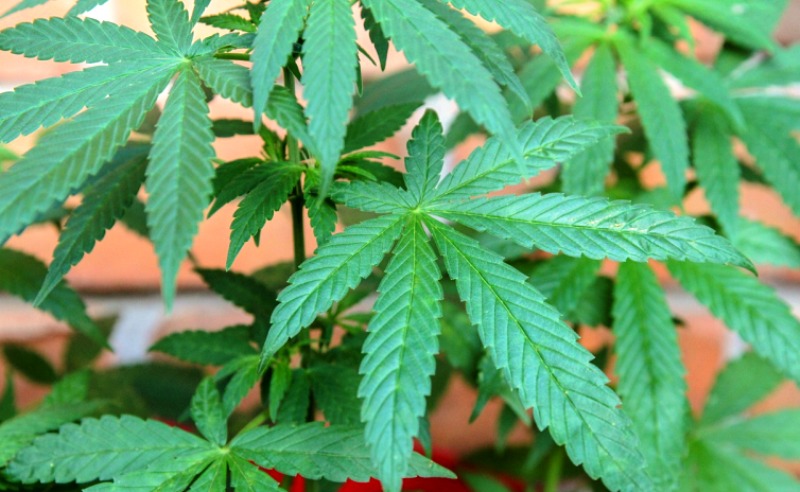CBD, a cannabinoid from the cannabis plant, has become a subject of study for its effects on the cardiovascular system. The compound is proving to be promising as a future therapeutic agent for cardiovascular diseases, partly due to its ability to lower blood pressure and calm inflammation.
The cardiovascular system plays a vital physiological role in our bodies. Composed of heart, lungs and blood vessels, this system plays a crucial role: transporting nutrients, hormones, and oxygen to the cells through the bloodstream. Moreover, it also disposes of waste products, such as carbon dioxide and other nitrogenous waste through the same mechanisms.
Given its vital importance, it is quite obvious that any malfunctions or diseases of the cardiovascular system can have catastrophic consequences. It is no coincidence that cardiovascular pathologies are among the main causes of death worldwide. The disorders that fall into this category include chronic rheumatic heart disease, hypertension, coronary artery disease, strokes and diseases of the arteries, arterioles, and capillaries.
- The causes of cardiovascular diseases are numerous, but one of the most important factors is certainly the lifestyle. The best way to avoid such conditions from occurring is to follow a healthy diet and exercise regularly.
- Another solution to prevent, and possibly treat, the cardiovascular disease could lie within cannabis plants. Research is showing that CBD is an effective therapeutic agent for a variety of health problems, including cardiovascular disease. Some studies suggest that the cardiovascular system can derive important benefits from CBD, whose anti-inflammatory and antioxidant effects are the key to its therapeutic action.
CBD, Vascular System And Stress
Cannabinoids have been shown to have a direct effect on the vascular system. Apparently, CBD would be able to reduce the tension of blood vessel walls.
One of the benefits of CBD on the cardiovascular system is its ability to reduce blood pressure at rest, as well as blood pressure in the face of stressful stimuli. A 2017 article published in JCL Insight magazine investigated the ability of CBD to reduce blood pressure in the human body. The nine healthy male volunteers who participated in the study were given 600mg of CBD or placebo.
According to the results obtained, the CBD showed that it was possible to lower the resting systolic blood pressure (maximum arterial pressure during cardiac contraction) and to reduce the systolic volume (the amount of blood pumped with each beat). These results have important implications considering that high blood pressure is one of the causes of ischemic heart disease.
Stress And Anxiety
The study also showed that CBD is able to reduce the response of blood pressure to stress. Although stress is often perceived as a mental health problem, in the long run, it can have profound physiological consequences. Long-term stress is in fact associated with the development of cardiovascular diseases. This stress can derive from social isolation, low socioeconomic status, working life, and anxiety.
Stress can help trigger cardiovascular disease by increasing blood pressure. Chronic release of stress hormones, such as adrenaline and cortisol, can also be a determining factor. Research has shown that stress can change the mechanisms of blood clotting, increasing the risk of heart attacks.
Myocarditis
Myocarditis is a disease caused by inflammation of the myocardium, the muscle tissue of the heart. The British Heart Foundation reports that this condition is not induced by lifestyle factors, including smoking and diet. The foundation also states that there are no medical therapies available to prevent this disorder. Many people who fall ill with myocarditis recover with minimal or no complications. However, in some cases, the inflammation degenerates to such an extent as to damage the heart.
The main causes of myocarditis are viral, bacterial and fungal infections and autoimmune diseases. The symptoms of this disease can often manifest as pain/tightness in the chest, shortness of breath, difficulty in breathing, flu-like symptoms, and heart palpitations.
Some interesting researches have shown that CBD could have important therapeutic applications against myocarditis in the future. A 2016 article published in the journal Molecular Medicine examined the effects of CBD on inflammation, reconstruction and myocardial dysfunction in animal guinea pigs suffering from autoimmune myocarditis.
The results of the study show that the administration of CBD tends to significantly reduce autoimmune myocarditis, also improving myocardial dysfunction and heart failure. The results achieved by the CBD are largely due to its anti-inflammatory and anti-fibrotic effects. The authors of the study argue that CBD could have enormous potential in therapies against myocarditis.
MiocardicAndArithmia Ischemia
Ischemia is defined as an insufficient supply of blood to an organ or to any part of the body, particularly in the heart muscles. When it comes to the heart, ischemia can cause arrhythmias or irregular heartbeats. A heartbeat slower than normal is also known as bradycardia, while the more rapid heartbeat is known as tachycardia. An irregular heartbeat is referred to as atrial fibrillation or flutter.
The nutrients and oxygen carried by the blood are vital for the cells, but cell death or necrosis can occur when they fail. When ischemia interrupts blood flow to the heart, conditions are created for a heart attack, or a small localized area of tissue dies due to the lack of blood supply.




























